Nonprofits Aren’t Sideprojects: Why Expertise Matters with Mike Payne
If you’ve ever found yourself relaying messages between your lawyer and your accountant like a game of telephone, you’re not alone. In this episode of The Nonprofit Counsel, host May Harris talks with Mike Payne, CPA, attorney, and founder of Boss Advisors, about why nonprofits thrive when legal and accounting professionals work together instead of in silos.
From Accidental Entry to Purposeful Integration
Like many nonprofit professionals, Mike Payne never meant to work with nonprofits. He was a CPA in law school during the recession, planning a career with the IRS, when a hiring freeze rerouted his plans. That twist led him to Ernst & Young’s exempt organizations group—a niche he hadn’t known existed. There, he spent years immersed in the world of complex tax filings, foundations, and IRS interactions. The experience revealed an entirely new discipline: one that blended law, tax, and mission-driven purpose in equal measure.
Years later, he founded Boss Advisors, a firm that brings both worlds together. Payne created a one-stop shop where accountants and lawyers sit under the same roof, offering nonprofits a truly integrated approach to compliance and strategy. As he put it, nonprofit work lives squarely at the intersection of law and tax—and that’s exactly where his team thrives.
When Clients Become the Translators
Most nonprofits don’t have the luxury of a combined team. They hire an accountant for the numbers and a lawyer for the governance, and then end up stuck in the middle—translating information between two professionals who don’t always speak the same language. The result? Missed details, mismatched advice, and a lot of unnecessary stress for executive directors and boards.
Mike and May both know this scenario well. Each has seen clients get caught between separate firms that don’t communicate, leaving nonprofits to piece together guidance about bylaws, tax filings, and new programs. “It’s unfair to put clients in that position,” Mike explained. “They shouldn’t have to be the interpreters.”
That’s why both of their firms have made collaboration a priority. When accountants can review legal documents and lawyers can understand the financial filings, everything aligns—from Form 990 disclosures to strategic decisions about new initiatives. It’s not just efficient—it’s safer.
The Danger of Dabbling
Both Mike and May have seen the same pattern from opposite sides of the table: professionals who “dabble” in nonprofit work and unintentionally cause serious harm. For accountants, it often starts with a well-meaning favor—a business client who also sits on a nonprofit board asks for help with a Form 990. For lawyers, it’s the occasional pro bono project that seems simple enough until something goes wrong.
As May pointed out, a single misstep—like filing incorrect articles of incorporation—can create months or even years of cleanup. In states like California, where the Attorney General must approve certain corrections, those errors can delay an organization’s ability to operate properly for a year or more. Mike agreed, adding that dabbling in this field isn’t just risky—it can amount to malpractice. “If you don’t understand nonprofit law and tax, you shouldn’t learn it on the client’s dime,” he said.
Building Better Board Practices
The conversation also turned to what nonprofit leaders and boards can do to prevent problems before they start. One of Mike’s top recommendations is to establish a digital “board packet”—a shared space where key living documents like articles, bylaws, budgets, and policies are stored and accessible. New board members should be required to review those materials before they vote on anything. It’s a simple step that dramatically improves continuity, especially for organizations that experience regular board turnover.
He also encourages boards to schedule formal governance training as part of onboarding. Even a one- or two-day crash course can help directors understand their legal duties, conflict of interest requirements, and the basics of nonprofit financial oversight. Many compliance issues stem not from bad intent, but from directors simply not knowing what’s required of them.
Further, the importance of revisiting core documents every few years cannot be overstated. Over time, organizations evolve, but their bylaws and articles often don’t. When the activities of a nonprofit start to drift from its stated purpose, it can raise questions with regulators—or worse, threaten its tax-exempt status.
The Principle That Ties It All Together
As the episode wrapped up, Mike offered one simple rule that sums up his approach to nonprofit compliance: every transaction must be either fair or favorable to the organization. In essence, treat the nonprofit better than you’d treat yourself. When in doubt, err on the side of generosity toward the mission.
It’s a fitting close to a conversation about alignment—between accountants and lawyers, between boards and documents, and between good intentions and good governance. When those pieces move together, nonprofits can stop translating and start thriving.

